What Movies are you Watching?
Re: What Movies are you Watching?
Recently I’ve been watching some film versions of plays that I teach.
Medea (Jeffers adaptation): I didn’t actually watch the entire movie, just most of it, because it was so stultifyingly boring that I didn’t have the patience to finish it to the end even though I was doing other things while watching. The main reason is that the movie is basically a stage production that happened to have been filmed. The acting might have been fairly engaging in a live production, but it just does not work as a film. I also didn’t particularly like the Jeffers adaptation of Medea even as a book, and that by itself would be a sufficient reason to make me dislike the film.
Julius Caesar (1970: Charles Heston, Jason Robards). Occasionally cheesy, and the special effects are nothing to boast of. Most of the acting is (by my less than expert standards) quite good, except for Brutus, whose performance comes across as being very flat. There’s also the issue of skipping lines, which is usually necessary with Shakespeare if you don’t want the film to end up being three to four hours long. This particular version skips a bit too much for my taste—sometimes entire scenes—and in ways that occasionally don’t make very much sense. Overall, however, I don’t regret having spent my time watching it, despite the way that it was marred by having such a deadpan Brutus. Clearly a lot of care was put into recreating the historical setting through the backdrops, costumes, and so on, and it was a pleasure to be given such lush visuals for things like the battles between the conspirators’ forces and the Triumvirate’s (especially all the troops on horseback!), even though it was amusingly obvious that the horses were falling down in battle because they were trained to do so and were lying down on cue.
Julius Caesar (1953: Calhern Louis, Marlon Brando, John Gielgud and James Mason). I wasn’t following along with the text while watching this one, nor giving it my whole attention, but fewer lines were skipped at the cost of having the actors speak much more quickly. I’ve heard that actors in Shakespeare’s day really did speak much faster than we do now, so that’s a reasonable decision, but it does make some of the lines feel rushed. Also really enjoyed the battle scene in this version. It was quite brief, but the horses that fell down looked much more like they really did fall down accidentally or because of wounds, in contrast to the 1970 version. Overall, I think it is probably the superior version: less lines are skipped makes it more coherent, and James Mason’s Brutus is vastly superior to Jason Roberds’s.
Next up, sometime soon I’m planning on watching the three different film Hamlets that I have access to (Kenneth Branagh, Mel Gibson, David Tennant).
Medea (Jeffers adaptation): I didn’t actually watch the entire movie, just most of it, because it was so stultifyingly boring that I didn’t have the patience to finish it to the end even though I was doing other things while watching. The main reason is that the movie is basically a stage production that happened to have been filmed. The acting might have been fairly engaging in a live production, but it just does not work as a film. I also didn’t particularly like the Jeffers adaptation of Medea even as a book, and that by itself would be a sufficient reason to make me dislike the film.
Julius Caesar (1970: Charles Heston, Jason Robards). Occasionally cheesy, and the special effects are nothing to boast of. Most of the acting is (by my less than expert standards) quite good, except for Brutus, whose performance comes across as being very flat. There’s also the issue of skipping lines, which is usually necessary with Shakespeare if you don’t want the film to end up being three to four hours long. This particular version skips a bit too much for my taste—sometimes entire scenes—and in ways that occasionally don’t make very much sense. Overall, however, I don’t regret having spent my time watching it, despite the way that it was marred by having such a deadpan Brutus. Clearly a lot of care was put into recreating the historical setting through the backdrops, costumes, and so on, and it was a pleasure to be given such lush visuals for things like the battles between the conspirators’ forces and the Triumvirate’s (especially all the troops on horseback!), even though it was amusingly obvious that the horses were falling down in battle because they were trained to do so and were lying down on cue.
Julius Caesar (1953: Calhern Louis, Marlon Brando, John Gielgud and James Mason). I wasn’t following along with the text while watching this one, nor giving it my whole attention, but fewer lines were skipped at the cost of having the actors speak much more quickly. I’ve heard that actors in Shakespeare’s day really did speak much faster than we do now, so that’s a reasonable decision, but it does make some of the lines feel rushed. Also really enjoyed the battle scene in this version. It was quite brief, but the horses that fell down looked much more like they really did fall down accidentally or because of wounds, in contrast to the 1970 version. Overall, I think it is probably the superior version: less lines are skipped makes it more coherent, and James Mason’s Brutus is vastly superior to Jason Roberds’s.
Next up, sometime soon I’m planning on watching the three different film Hamlets that I have access to (Kenneth Branagh, Mel Gibson, David Tennant).
Let others believe in the God who brings men to trial and judges them. I shall cling to the God who resurrects the dead.
-St. Nikolai Velimirovich
MAL
-St. Nikolai Velimirovich
MAL
-

Kaori - Posts: 1463
- Joined: Wed Dec 22, 2004 4:48 pm
- Location: 一羽の鳥が弧を描いてゆく
Re: What Movies are you Watching?
I've just recently watched....
A Princess For Christmas
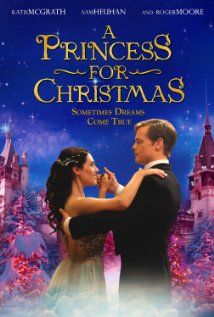
Christmas with a Capital C
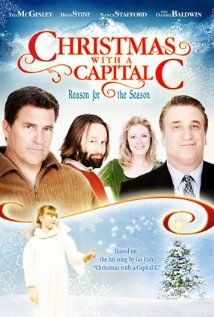
And the move version of the bible study The Christmas Experience
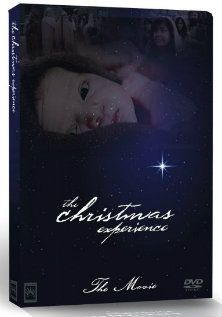

A Princess For Christmas

Christmas with a Capital C

And the move version of the bible study The Christmas Experience


Luke 10:25-27 Mark 12:28-34 Matthew 22 Deuteronomy 6:4-5 Deuteronomy 10:12
“Love the Lord your God with all your heart and with all your soul and with all your strength and with all your mind, and your neighbor as yourself.”
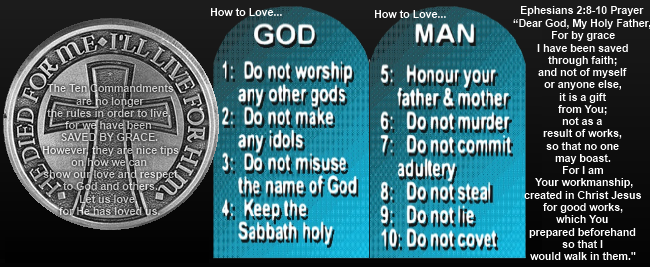
No one is perfect, but by one prayer at a time, and one step at a time, God can make our paths straight.
Proverbs 3:6 "In all your ways acknowledge Him, And He will make your paths straight."
“Love the Lord your God with all your heart and with all your soul and with all your strength and with all your mind, and your neighbor as yourself.”

No one is perfect, but by one prayer at a time, and one step at a time, God can make our paths straight.
Proverbs 3:6 "In all your ways acknowledge Him, And He will make your paths straight."
-

Cc4FuzzyHuggles - Posts: 131
- Joined: Tue Nov 29, 2011 6:07 pm
- Location: I live wherever the Lord leads me. (currently in an apartment with my sweet cat.)
Re: What Movies are you Watching?
I am in agony! Princess Mononoke is waiting for me at the library and I can't get to it!
-

SierraLea - Posts: 1255
- Joined: Sat Mar 10, 2012 7:57 am
- Location: the epitome of laugher
Re: What Movies are you Watching?
Cc4, those look awfully um... 'Christian'. I think I'll pass. Also, isn't "Christmas with a Capital C" a kid's worship song?
Sierra, I understand that one. Princess Mononoke is a phenomenal movie, one of my absolute favourites. Have you seen it before? If not, you're in for a treat. Enjoy!
Sierra, I understand that one. Princess Mononoke is a phenomenal movie, one of my absolute favourites. Have you seen it before? If not, you're in for a treat. Enjoy!
-

Warrior 4 Jesus - Posts: 4844
- Joined: Tue Sep 07, 2004 10:52 pm
- Location: The driest continent that isn't Antarctica.
Re: What Movies are you Watching?
Warrior 4 Jesus wrote:Cc4, those look awfully um... 'Christian'. I think I'll pass. Also, isn't "Christmas with a Capital C" a kid's worship song?
The fine print lower on the boxshot says "Based on Go Fish's hit song, 'Christmas With a Capital C,'" so I assume so! I've never heard of either the song or the band, so you know it has to be good! Also, holy crow, I thought that was Alec Baldwin on the right. Turns out it was only Daniel Baldwin... Close enough, right?
What have I watched recently? Well... the super awesome cheap movie theater, the only one in town, hasn't shown anything I'd go see that I hadn't already seen since July or so, and they haven't changed their marquee in a month, so I think they closed down, a victim of the digital projector transition.
The last movie I saw must have been Strangers on a Train, a Hitchcock thriller about these two guys who each have someone in their lives they want dead, and decide to do each others' dirty work. It was pretty entertaining; I wouldn't say it was one of Hitchcock's best, but I don't regret seeing it!
Last edited by Davidizer13 on Mon Jan 07, 2013 5:21 pm, edited 1 time in total.
-

Davidizer13 - Posts: 1080
- Joined: Fri Jun 26, 2009 9:27 am
- Location: VIOLENT CITY
Re: What Movies are you Watching?
Ah, cheers, Davidizer. I didn't notice that one. Far out! How many Baldwin brothers are there? I knew Stephen Baldwin starred in some Christian movies but there's a Daniel Baldwin too?! Craziness!
-

Warrior 4 Jesus - Posts: 4844
- Joined: Tue Sep 07, 2004 10:52 pm
- Location: The driest continent that isn't Antarctica.
Re: What Movies are you Watching?
From the time I was staying in Melbourne until today, I watched the following:
- Wreck-It Ralph (2nd time for me, 1st for cousins)
- Hairspray
- Les Miserables (cried my eyes out here)
- Pokémon The Movie: Black—Victini and Reshiram (DVD was a gift from my aunt; still not finished with it)
- Brave
- The Fantastic Mr. Fox
- Richie Rich
- Little Manhattan (for a class project; didn't finish it)
- The Perks of Being a Wallflower (saw it in class today; it's for another project)
Man, was I on a roll.
- Wreck-It Ralph (2nd time for me, 1st for cousins)
- Hairspray
- Les Miserables (cried my eyes out here)
- Pokémon The Movie: Black—Victini and Reshiram (DVD was a gift from my aunt; still not finished with it)
- Brave
- The Fantastic Mr. Fox
- Richie Rich
- Little Manhattan (for a class project; didn't finish it)
- The Perks of Being a Wallflower (saw it in class today; it's for another project)
Man, was I on a roll.
-

CrystalChalice - Posts: 286
- Joined: Thu May 13, 2010 6:32 am
Re: What Movies are you Watching?
I got Princess Mononoke from the library, and am infuriated. My favorite part is scratched up like crazy, so I can't watch it! Don't you just hate it when that happenes, even if it's in an unimportant part of the movie? I do have lots of different favorite places in that movie, though, so it wasn't all hat bad. But I'm still mad.
-

SierraLea - Posts: 1255
- Joined: Sat Mar 10, 2012 7:57 am
- Location: the epitome of laugher
Re: What Movies are you Watching?
Sorry for the double post.
I got to see Fullmetal Alchemist, Sacred Star of Milos and Naruto, the Lost Tower. FMA was antastic as always, although I felt like they could have left Winry out of this arc without any trouble. Naruto was super dissapointing. I wanted to see more action between Naruto and his dad!
I got to see Fullmetal Alchemist, Sacred Star of Milos and Naruto, the Lost Tower. FMA was antastic as always, although I felt like they could have left Winry out of this arc without any trouble. Naruto was super dissapointing. I wanted to see more action between Naruto and his dad!
-

SierraLea - Posts: 1255
- Joined: Sat Mar 10, 2012 7:57 am
- Location: the epitome of laugher
Re: What Movies are you Watching?
I'm sorry... these... covers...
Because, as we have always known, women are objects that can be gifted during the holidays.
There is so much gold on this cover. First thing I noticed having grown up in a Christian home in the 2000's, the guy on the far left looks like the dude who starred opposite Kirk Cameron in Left Behind. Speaking of which, where is Kirk Cameron? These movies seem right up his alley.
Next, I love the subtitle, "Reason for the Season." Undoubtedly they were concerned that their film would be mistaken for a PSA, created by the American Grammar Association, of the same title.
Lastly, check out the little girl. Does she not look like the "Calm down"/"You're*" meme?
-_-
Anyway, while I was in America and since I've returned I watched The Book of Eli, Megamind, The Hobbit, and Looper.
I liked them all except Looper. Looper contained the kind of violence that just makes me feel very sad and horrified, and leaves me praying for Jesus to come back NOW.
Cc4FuzzyHuggles wrote:I've just recently watched....
A Princess For Christmas
Because, as we have always known, women are objects that can be gifted during the holidays.
Cc4FuzzyHuggles wrote:Christmas with a Capital C
There is so much gold on this cover. First thing I noticed having grown up in a Christian home in the 2000's, the guy on the far left looks like the dude who starred opposite Kirk Cameron in Left Behind. Speaking of which, where is Kirk Cameron? These movies seem right up his alley.
Next, I love the subtitle, "Reason for the Season." Undoubtedly they were concerned that their film would be mistaken for a PSA, created by the American Grammar Association, of the same title.
Lastly, check out the little girl. Does she not look like the "Calm down"/"You're*" meme?
And the move version of the bible study The Christmas Experience
And the move version of the bible study
-_-
Anyway, while I was in America and since I've returned I watched The Book of Eli, Megamind, The Hobbit, and Looper.
I liked them all except Looper. Looper contained the kind of violence that just makes me feel very sad and horrified, and leaves me praying for Jesus to come back NOW.
-

Yuki-Anne - Posts: 1637
- Joined: Thu Aug 10, 2006 10:33 am
- Location: Japan
Re: What Movies are you Watching?
Got to see a bunch of movies over Christmas:
Bourne Legacy - Fun action flick, not as awesome as the other Bourne movies, but that's to be expected since it's not even Bourne himself.
The Hobbit: An Unexpected Journey - In a word, AWESOMESAUCE. More thoughts in the Hobbit thread.
I, Robot - Introduced this to my sisters. Will Smith is just as awesome as ever, and we all loved the swooping shots on our shiny new TV.
Marathoned the LotR movies again
A Christmas Carol (the Jim Carrey one) - This is becoming my family's traditional Christmas movie, and I love it. It's really the best adaptation of the book I've ever seen; I think it manages to give the same kind of impact the book was supposed to, while also just being really fun to watch.
The Fall - Got to introduce my new favorite movie to my mom and sisters, and they loved it. We were all in tears by the end, of course, because it's so freaking beautiful T_T
The Hobbit (animated) - Just for laughs. When you compare this to the new movie, I don't know how anyone can complain.
Brave - I actually liked this movie quite a bit (though that's probably because so many people dissed it before I saw it). Sure, it's a story we've all seen before, and the themes were meh, but I thought they told the cliches well, and that's what's important to me in any story. And it reminded me a lot of one of my favorite movies, Brother Bear, so that helped And obviously the graphics and Scottish accents were amazing.
And obviously the graphics and Scottish accents were amazing.
Taken 2 - Objectively speaking, it's just another action flick like many we've seen before. But I think I may have to buy this one eventually, for one simple reason: It's set in Istanbul. a;ldkfjs;dlfj <3
Hotel Transylvania - As I expected, it's only worth one watch, really, but it was genuinely funny and enjoyable. The message is one of the worst you could possibly give your kids, though
Ice Age: Continental Drift - Similar to Hotel Transylvania, it was legitimately funny, and I enjoyed it, but it's a rather forgettable movie overall. Pretty good as far as sequels go, but nothing will ever match the beauty of the original Ice Age.
The Man Who Knew Too Little - Got to introduce this hilarious movie to my roommate when I got back to school. Bill Murray does stupid-humor so well
Bourne Legacy - Fun action flick, not as awesome as the other Bourne movies, but that's to be expected since it's not even Bourne himself.
The Hobbit: An Unexpected Journey - In a word, AWESOMESAUCE. More thoughts in the Hobbit thread.
I, Robot - Introduced this to my sisters. Will Smith is just as awesome as ever, and we all loved the swooping shots on our shiny new TV.
Marathoned the LotR movies again

A Christmas Carol (the Jim Carrey one) - This is becoming my family's traditional Christmas movie, and I love it. It's really the best adaptation of the book I've ever seen; I think it manages to give the same kind of impact the book was supposed to, while also just being really fun to watch.
The Fall - Got to introduce my new favorite movie to my mom and sisters, and they loved it. We were all in tears by the end, of course, because it's so freaking beautiful T_T
The Hobbit (animated) - Just for laughs. When you compare this to the new movie, I don't know how anyone can complain.
Brave - I actually liked this movie quite a bit (though that's probably because so many people dissed it before I saw it). Sure, it's a story we've all seen before, and the themes were meh, but I thought they told the cliches well, and that's what's important to me in any story. And it reminded me a lot of one of my favorite movies, Brother Bear, so that helped
 And obviously the graphics and Scottish accents were amazing.
And obviously the graphics and Scottish accents were amazing.Taken 2 - Objectively speaking, it's just another action flick like many we've seen before. But I think I may have to buy this one eventually, for one simple reason: It's set in Istanbul. a;ldkfjs;dlfj <3
Hotel Transylvania - As I expected, it's only worth one watch, really, but it was genuinely funny and enjoyable. The message is one of the worst you could possibly give your kids, though

Ice Age: Continental Drift - Similar to Hotel Transylvania, it was legitimately funny, and I enjoyed it, but it's a rather forgettable movie overall. Pretty good as far as sequels go, but nothing will ever match the beauty of the original Ice Age.
The Man Who Knew Too Little - Got to introduce this hilarious movie to my roommate when I got back to school. Bill Murray does stupid-humor so well

-

the_wolfs_howl - Posts: 3273
- Joined: Thu Mar 01, 2007 11:26 pm
- Location: Not Paradise...yet
Re: What Movies are you Watching?
Dredd: Easily one of the best and most visually stunning action films I have seen in a LONG time. Seriously that slow mo looks amazing!
Looper: I liked it, a bit over hyped but I did like it. The violence in the film is pretty disturbing and graphic.
Resident Evil Retribution: An awful movie, as a fan of the game serious that the movies were once based on a LOOOOONG time ago it was a painful sit.
Savages: So many bad lines within the first 15 mins I had to turn it off.
Red Lights : Great film, takes a weird turn near the end but it was a fun psychological ride.
Looper: I liked it, a bit over hyped but I did like it. The violence in the film is pretty disturbing and graphic.
Resident Evil Retribution: An awful movie, as a fan of the game serious that the movies were once based on a LOOOOONG time ago it was a painful sit.
Savages: So many bad lines within the first 15 mins I had to turn it off.
Red Lights : Great film, takes a weird turn near the end but it was a fun psychological ride.
-

GrubbTheFragger - Posts: 3940
- Joined: Sat Jun 25, 2005 12:00 pm
- Location: Colorado Springs , CO
Re: What Movies are you Watching?
(Most of) Tron:Legacy: Shiny, I think that they were able to accomplish all of the visual feats that the first movie wanted to. ... pretty meh otherwise, in my opinion. Having Flynn speak in a 'period' style was in keeping with both the character and his situation, but I couldn't take him seriously when he did it.
Green Lantern: Also shiny, very shiny. A decent comic book movie; and in the opinion of someone with a passing familiarity with the franchise a decent adaptation/origin story.
Green Lantern: Also shiny, very shiny. A decent comic book movie; and in the opinion of someone with a passing familiarity with the franchise a decent adaptation/origin story.
MAL - CAA MAL club - Avatar from Hyouka
"DaughterOfZion 06:19 - forget love, fudge conquers all. xD"
"Written assignments are never finished, only due." -me
-Speak not unless you can improve the silence.-
MOES: Members Observing Efficient Sigs
"DaughterOfZion 06:19 - forget love, fudge conquers all. xD"
"Written assignments are never finished, only due." -me
-Speak not unless you can improve the silence.-
MOES: Members Observing Efficient Sigs
-

MomentOfInertia - Posts: 1316
- Joined: Tue May 25, 2010 7:21 pm
- Location: Around
Re: What Movies are you Watching?
Right now I'm watching Windtalkers. Nicolas Cage's Japanese pronunciation is ATROCIOUS.
-

Yuki-Anne - Posts: 1637
- Joined: Thu Aug 10, 2006 10:33 am
- Location: Japan
Re: What Movies are you Watching?
Just watched the Tintin movie. Great work! Loved the animation.
-

rocklobster - Posts: 8903
- Joined: Mon Dec 20, 2004 1:27 pm
- Location: Planet Claire
Re: What Movies are you Watching?
I watched Naussica, Valley of the Wind last night, and thought it had way too much information and characters for almost any of them to be properly developed, or even explained. This movie would have been a lot better as an anime series.
-

SierraLea - Posts: 1255
- Joined: Sat Mar 10, 2012 7:57 am
- Location: the epitome of laugher
Re: What Movies are you Watching?
SierraLea wrote:I watched Naussica, Valley of the Wind last night, and thought it had way too much information and characters for almost any of them to be properly developed, or even explained. This movie would have been a lot better as an anime series.
Read the manga its really great
 the anime/movie was kinda bad compared to it....
the anime/movie was kinda bad compared to it....Just watched The Way on netflix, I had been wanting to watch it for some time now since I'd like to go on the pilgrimage the movie is about. Great movie

-

Makachop^^128 - Posts: 2215
- Joined: Tue Jun 09, 2009 3:27 pm
- Location: On board Serenity
Re: What Movies are you Watching?
My roommate and I watched the live-action Rurouni Kenshin movie. It was awesome. I was surprised at how violent and bloody it was; I don't recall the anime being that intense. Oh well. I thought they did an excellent job of adapting the first half or so of the story. They picked perfect people to portray the characters, especially Kenshin, and I loved how they made everything more realistic, even details like when Kenshin snaps back into his Hitokiri mindset. And the action  a;ldhjdglkjsf I could watch this forever <3
a;ldhjdglkjsf I could watch this forever <3
 a;ldhjdglkjsf I could watch this forever <3
a;ldhjdglkjsf I could watch this forever <3-

the_wolfs_howl - Posts: 3273
- Joined: Thu Mar 01, 2007 11:26 pm
- Location: Not Paradise...yet
Re: What Movies are you Watching?
I'm going to make it a goal to see all the Hayao Miyazaki films.
-

SierraLea - Posts: 1255
- Joined: Sat Mar 10, 2012 7:57 am
- Location: the epitome of laugher
Re: What Movies are you Watching?
Enemy At The Gates
"People need fear, we experience it so we can grow stronger"-Maka Albarn
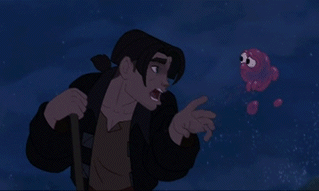

-

Panda4christ:3 - Posts: 1117
- Joined: Fri Jul 15, 2011 9:15 pm
- Location: There are some things you should just keep to yourself
Re: What Movies are you Watching?
the_wolfs_howl wrote:They picked perfect people to portray the characters, especially Kenshin
Of course he was great, he was Takeru Satoh!
Did you see it subbed? 'Cuz I want to see it too...I am a Kamen Rider fanboy and must watch Ryotaro fight with a sword.

Ezekiel 23:20
-

Nate - Posts: 10725
- Joined: Thu Sep 02, 2004 12:00 pm
- Location: Oh right, like anyone actually cares.
Re: What Movies are you Watching?
SierraLea wrote:I watched Naussica, Valley of the Wind last night, and thought it had way too much information and characters for almost any of them to be properly developed, or even explained. This movie would have been a lot better as an anime series.
I'm fairly sure that this qualifies as 'anime' o.O
Anycase, have been catching up on some horror films I've been meaning to watch:
Muoi: Legend of a Portrait - It's kinda of fun comparing Asian horror to American horror. Asian horro: the thing is definitely on the bed or behind the curtain or under the couch. Almost always. American? Nope, it's not there, just your imagination(?) I'm not complaining about that - it's not a bad thing. As for the movie... decent? But too Gridge-ish for me to really enjoy.
The Dorm - This I liked a lot better. A boy gets sent to a boarding school, and the ghost of a boy who died there helps show what it means to be a friend and helps him become more at peace with his life. Very sweet, not scary.
Epitaph - Another fairly decent one (better than Muoi), which has a bunch of strange happening centered around a hospital during one week. Very, VERY odd things. The individual stories are interesting, but they don't all really tie together in the end, which it really feels it should have done. Definitely horror, but more... psychological than outright horror.
A Tale Of Two Sisters - EH. Severely 'meh' on this one, mostly because the backstory isn't told in a way that really makes it comprehensive and I'm still not entirely sure about what was going on. The psychological aspect was decent, and I do like the sort-of-maybe way there *might* be something actually supernatural in the house (it's totally left up to the viewer since so much of the supernatural and what happened in the house was simply in the girl's mind). But clarity is completely lacking.
-

Atria35 - Posts: 6295
- Joined: Sat Mar 20, 2010 7:30 am
Re: What Movies are you Watching?
Nate wrote:Did you see it subbed? 'Cuz I want to see it too...I am a Kamen Rider fanboy and must watch Ryotaro fight with a sword.
Yup, it was subbed. The only way to watch a movie about samurai
 The fight scenes were even cooler than they are in the anime, and much more believable too
The fight scenes were even cooler than they are in the anime, and much more believable too 
For class, I watched a Chinese movie called To Live. It's about a man struggling to support his family during the turmoil of the Cultural Revolution. It goes through all the ups and downs of real life, and I think did a really great job at portraying everyone realistically - there were no "good guys" or "bad guys"; even the people who seemed like jerks at one point ended up somewhat sympathetic farther down the road. Some parts brought me to tears, what with all the tragedies they faced.
The Dark Knight Rises - a;ldkjfsd;lkfjsd;klfjd;lksfjdkl *faints from the awesomeness* I knew this was going to be cool, and it certainly didn't disappoint! The plot was so much fun (and easier to keep track of and less overwhelming than The Dark Knight), and of course the action was awesome, and there was so much angst. Loved it. But what I loved the most was every scene between Bruce and Alfred <3 That relationship is so heart-wrenchingly beautiful, and it was the one thing that brought me to tears. It might sound strange, but Alfred is by far my favorite character.
-

the_wolfs_howl - Posts: 3273
- Joined: Thu Mar 01, 2007 11:26 pm
- Location: Not Paradise...yet
Re: What Movies are you Watching?
I don't know if Origin is a Miazaki film, but it could be. That's how cool it was. Although, the main character could have been a little smarter and not so obsessed with Tula.
-

SierraLea - Posts: 1255
- Joined: Sat Mar 10, 2012 7:57 am
- Location: the epitome of laugher
Re: What Movies are you Watching?
SierraLea wrote:I don't know if Origin is a Miazaki film, but it could be. That's how cool it was. Although, the main character could have been a little smarter and not so obsessed with Tula.
It's not Miyazaki or Studio Ghibli - the character art is the major indicator of that. Also, these are anime movies, I think they go in that thread....
-------------
Anycase, watched Rango. ....It's okay.....
-

Atria35 - Posts: 6295
- Joined: Sat Mar 20, 2010 7:30 am
Re: What Movies are you Watching?
SierraLea wrote:I watched Naussica, Valley of the Wind last night, and thought it had way too much information and characters for almost any of them to be properly developed, or even explained. This movie would have been a lot better as an anime series.
That's 'cause it got adapted from the first couple chapters of a seven-part manga, which I remember liking quite a lot.
The last movie I saw was Robot Carnival, an '80s anthology of animated shorts all involving robots in some way; some of the animators ended up making it big in the anime business further on. As is usually the case with this sort of thing, it's a very hit-or-miss collection. The best of the bunch are the opening and closing sequences, which feature a huge circus on wheels happily wreaking havoc on a post-apocalytic world where it has overstayed its welcome, Nightmare, and A Tale of Two Robots, which draws equally from classic super robot shows and WW2-era Japanese propaganda films.
Other than that, though, the collection's pretty lackluster, with most of the shorts feeling like they could've done more with the time they had, be it in creativity (looking at you, Deprive), or in the way they told their stories - Cloud, a view of humanity's rise and fall from a distance that just drags on, is especially disappointing, because it's so easy to do well (and if you want to see it done well, check out a little freeware shmup called Genetos). Still, one thing doesn't change through all the shorts: the animation is amazing. It's smooth, it's inventive, it's pretty to look at, but that's about all there is to see here.
-

Davidizer13 - Posts: 1080
- Joined: Fri Jun 26, 2009 9:27 am
- Location: VIOLENT CITY
Re: What Movies are you Watching?
Just watched the uncensored version of A Serbian Film.
I went in knowing everything, basically, and I was surprised as I watched that I could totally follow the director's statements that were on the Wikipedia page. Subtlety wasn't the film's strong suit, but the whole blurring of fake and real media, metafictional elements, ideas of responsibility and victimisation; there were some neat ideas the film screamed in my face.
I can't help but feel anyone who felt like they got their "soul raped" is kind of a wuss, but I can also understand why an emotionally weak person would be unable to see past the gross stuff and understand the not particularly subtle ideas and themes.
I wouldn't call the film a masterpiece, and, unintentional humour (unconvincing simulations, impossibly hilarious reaction shots) aside, the more confronting scenes were overblown. It was too much - not for my stomach. Rather, it just felt silly by the end.
Anyway, I found it to be a good film, kinda pretentious, quite over-the-top but an effective horror movie.
I went in knowing everything, basically, and I was surprised as I watched that I could totally follow the director's statements that were on the Wikipedia page. Subtlety wasn't the film's strong suit, but the whole blurring of fake and real media, metafictional elements, ideas of responsibility and victimisation; there were some neat ideas the film screamed in my face.
I can't help but feel anyone who felt like they got their "soul raped" is kind of a wuss, but I can also understand why an emotionally weak person would be unable to see past the gross stuff and understand the not particularly subtle ideas and themes.
I wouldn't call the film a masterpiece, and, unintentional humour (unconvincing simulations, impossibly hilarious reaction shots) aside, the more confronting scenes were overblown. It was too much - not for my stomach. Rather, it just felt silly by the end.
Anyway, I found it to be a good film, kinda pretentious, quite over-the-top but an effective horror movie.
-

Neane - Posts: 1996
- Joined: Fri Jul 22, 2011 5:12 pm
- Location: Candlekeep, Faerûn
Re: What Movies are you Watching?
Check this out. This is amazingly real.
http://www.youtube.com/watch?v=FE_nr2t6fKQ
http://www.youtube.com/watch?v=FE_nr2t6fKQ
-

SierraLea - Posts: 1255
- Joined: Sat Mar 10, 2012 7:57 am
- Location: the epitome of laugher
Re: What Movies are you Watching?
Watched a few different film versions of Hamlet a few weeks ago.
Kenneth Branagh (1996): To start with negatives, there are a couple of interpretive decisions in this version that I strongly disagree with. One is the wantonly cruel actions Polonius takes towards Ophelia, like shoving her into a corner while questioning her about her relationship with Hamlet and forcing her to read the letter she received from him aloud to the king. I don’t think this is a good interpretation of Polonius as a character: Shakespeare wrote him as being gregarious and foolish but well-meaning, and there’s no basis for inserting this kind of cruelty. The sexuality in the movie (mainly the sex scene between Hamlet and Ophelia) was also unnecessary and not something I wanted to see.
The acting and production were generally good. Branagh is a rather angry Hamlet compared to the others and at times bombastic, but I think that the grandiose interpretations are in some places exactly what’s needed, for example, Hamlet’s Act 4, Scene 4 soliloquy (after seeing Fortinbras’ troops advancing on Poland; ends with “My thoughts be bloody, or be nothing worth!”). That particular scene was extremely well-done and is probably my favorite in this film. This version also had the best Horatio and by far the best Claudius out of the three versions I watched; Derek Jacobi does a great job of bringing out both the winsome side of Claudius’ personality and his basically evil and vicious character. Also, it took advantage of the film medium to show flashbacks and cut to things going on in other places, which one would not be able to do on stage. These are usually helpful and make good contributions; for example, during Act 5 there’s an occasional cut to the Norwegian troops marching on Elsinore, which significantly improves the tension and excitement throughout the end of the movie.
In the end, though, what really makes this film the definitive film Hamlet is the fact that every single line in the play was included (though a few are shuffled around slightly, and who says the lines is also occasionally changed, e.g. Ophelia being made to read her letters from Hamlet aloud). As a result it is four hours long and not something that I would want to watch in a single sitting, but for a complete film Hamlet it is the only possible choice.
David Tennant Hamlet (2009): a modernized version made by the Royal Shakespeare Company. This film did a great job of bringing out some moments of humor. However, I’m not fond of the way that the dumb-show was interpreted (again, unnecessarily sexualized). As far as the acting goes, one reviewer referred to Tennant as being too “weepy,” and in some places I see his point (he’s also amusingly snarky in Act 1, Scene 2), but overall Tennant does a fine job. Patrick Stewart as Claudius does not convincingly come across as evil even when he is doing horrible, wicked things like scheming up ways to have Hamlet put to death. Also, Laertes came across as a bit flat. On the other hand, in this version the scene where Ophelia is mad and distributes flowers to the other characters was extremely well-done (possibly my favorite scene from this movie), and out of the three versions I watched this was the only one in which she distributed them correctly according to their symbolic meanings. Ophelia was interpreted in pretty much the same way in every version, but I would pick Ophelia in this version as my favorite by a slim margin, and for the interactions between Hamlet and Ophelia I definitely prefer this film over the other two. Also, the fencing match in this version was by far my favorite out of the three; it seemed the most like a real fencing match and wasn’t over-the-top like Branagh’s.
Lines were cut in order to keep the running time down to three hours, and probably more than half of the cuts work fine and are done smoothly and logically. However, there’s some major shuffling around of the order of some of the scenes of the play, and also some of the lines are cut in ways that don’t make sense—usually it results in a line that doesn’t logically follow from what was said before (because the lines that preceded it in the original were cut), and there’s also one place where Laertes’ line is changed in such a way that he says pretty much the exact opposite of what he really says in the play.
Franco Zeffirelli and Mel Gibson (1990): “Well, that was sort of like Hamlet” was my overall reaction. This movie was only 2 hours long, which meant that a full half of the play was cut out. In the Tennant version the cuts and shuffled scenes are somewhat unfortunate, but in this version the way that Zeffirelli rearranges scenes is downright ridiculous (“Get thee to a nunnery” shows up during the mousetrap play), and the huge amount of lines that were cut really hamstrings the movie as an adaption of the play. For example, Horatio, who is an extremely key character, says almost nothing in the entire movie because all his lines are cut out. My other big complaint with this movie is the way that the closet scene with Gertrude is so extremely sexualized.
On the positive side, Mel Gibson does just fine as Hamlet (convincingly low-spirited and depressed), the supporting cast was also good, the faithful medieval setting and costumes were a joy to behold (the movie was actually filmed at a castle in Denmark; the movie recreates the time period in which the story of Hamlet actually took place), and there were some helpful scenes at the beginning showing old Hamlet’s funeral to give background for the events leading up to the point at which the play begins. Also, this movie has a teenage boy play the role of the queen in the mousetrap play, which is really cool because the mousetrap play in the movie recreates what plays in Shakespeare’s day would have been like (costumes but no backdrops, all-male cast). Finally, out of the three this film has my favorite rendition of the “To be or not to be” soliloquy, which was very appropriately set in a crypt; that decision supports and supplements the meaning of what Hamlet is saying.
Overall, comparing all three, my opinion drops in proportion to how many lines are cut. Even cutting the Fortinbras subplot, which is arguably the least important of all the subplots in the play, really leaves the play with an inconclusive feeling. Elizabethan tragedies typically do not simply end with a bloody mess; there’s usually someone who comes in at the end who is going to restore order after the fall of the tragic hero and whoever else died. To leave this part of the final scene out, as both Tennant and Zeffirelli do, just does not feel right (come to think of it, it was kind of weird that Tennant included most of the Fortinbras subplot and only cut out that final part of Act 5, Scene 2; one would think that after going to the trouble of including the rest of the Fortinbras subplot it would be worthwhile to go all the way and include his appearance at the end). So in the end that is the single deciding factor that makes me prefer Branagh's version over the other two. This would be a good place to say which actor I prefer as Hamlet, but there isn’t really one that I prefer over the others in every aspect; the three interpretations of Hamlet are all quite different from each other, and they all have some parts that I like and some parts about which I’m less enthusiastic. None of the film versions truly got Ophelia’s character right, though: in the play she’s clearly portrayed as being meek, gentle, and obedient, whereas in each of these versions she’s portrayed as being far too strong. I guess nobody wants to portray an important female character as being weak, but, well, while there are plenty of strong women in Shakespeare, Ophelia just is not one of them.
I had thought about watching the Sir Laurence Olivier version because it is so highly-regarded and (though apparently this is the version that started the whole trend of interpreting the closet scene in an Oedipal way, which each of the version I watched followed to some degree or another) and still might sooner or later, but even just these three is more than enough film Hamlet for a while, I think.
Kenneth Branagh (1996): To start with negatives, there are a couple of interpretive decisions in this version that I strongly disagree with. One is the wantonly cruel actions Polonius takes towards Ophelia, like shoving her into a corner while questioning her about her relationship with Hamlet and forcing her to read the letter she received from him aloud to the king. I don’t think this is a good interpretation of Polonius as a character: Shakespeare wrote him as being gregarious and foolish but well-meaning, and there’s no basis for inserting this kind of cruelty. The sexuality in the movie (mainly the sex scene between Hamlet and Ophelia) was also unnecessary and not something I wanted to see.
The acting and production were generally good. Branagh is a rather angry Hamlet compared to the others and at times bombastic, but I think that the grandiose interpretations are in some places exactly what’s needed, for example, Hamlet’s Act 4, Scene 4 soliloquy (after seeing Fortinbras’ troops advancing on Poland; ends with “My thoughts be bloody, or be nothing worth!”). That particular scene was extremely well-done and is probably my favorite in this film. This version also had the best Horatio and by far the best Claudius out of the three versions I watched; Derek Jacobi does a great job of bringing out both the winsome side of Claudius’ personality and his basically evil and vicious character. Also, it took advantage of the film medium to show flashbacks and cut to things going on in other places, which one would not be able to do on stage. These are usually helpful and make good contributions; for example, during Act 5 there’s an occasional cut to the Norwegian troops marching on Elsinore, which significantly improves the tension and excitement throughout the end of the movie.
In the end, though, what really makes this film the definitive film Hamlet is the fact that every single line in the play was included (though a few are shuffled around slightly, and who says the lines is also occasionally changed, e.g. Ophelia being made to read her letters from Hamlet aloud). As a result it is four hours long and not something that I would want to watch in a single sitting, but for a complete film Hamlet it is the only possible choice.
David Tennant Hamlet (2009): a modernized version made by the Royal Shakespeare Company. This film did a great job of bringing out some moments of humor. However, I’m not fond of the way that the dumb-show was interpreted (again, unnecessarily sexualized). As far as the acting goes, one reviewer referred to Tennant as being too “weepy,” and in some places I see his point (he’s also amusingly snarky in Act 1, Scene 2), but overall Tennant does a fine job. Patrick Stewart as Claudius does not convincingly come across as evil even when he is doing horrible, wicked things like scheming up ways to have Hamlet put to death. Also, Laertes came across as a bit flat. On the other hand, in this version the scene where Ophelia is mad and distributes flowers to the other characters was extremely well-done (possibly my favorite scene from this movie), and out of the three versions I watched this was the only one in which she distributed them correctly according to their symbolic meanings. Ophelia was interpreted in pretty much the same way in every version, but I would pick Ophelia in this version as my favorite by a slim margin, and for the interactions between Hamlet and Ophelia I definitely prefer this film over the other two. Also, the fencing match in this version was by far my favorite out of the three; it seemed the most like a real fencing match and wasn’t over-the-top like Branagh’s.
Lines were cut in order to keep the running time down to three hours, and probably more than half of the cuts work fine and are done smoothly and logically. However, there’s some major shuffling around of the order of some of the scenes of the play, and also some of the lines are cut in ways that don’t make sense—usually it results in a line that doesn’t logically follow from what was said before (because the lines that preceded it in the original were cut), and there’s also one place where Laertes’ line is changed in such a way that he says pretty much the exact opposite of what he really says in the play.
Franco Zeffirelli and Mel Gibson (1990): “Well, that was sort of like Hamlet” was my overall reaction. This movie was only 2 hours long, which meant that a full half of the play was cut out. In the Tennant version the cuts and shuffled scenes are somewhat unfortunate, but in this version the way that Zeffirelli rearranges scenes is downright ridiculous (“Get thee to a nunnery” shows up during the mousetrap play), and the huge amount of lines that were cut really hamstrings the movie as an adaption of the play. For example, Horatio, who is an extremely key character, says almost nothing in the entire movie because all his lines are cut out. My other big complaint with this movie is the way that the closet scene with Gertrude is so extremely sexualized.
On the positive side, Mel Gibson does just fine as Hamlet (convincingly low-spirited and depressed), the supporting cast was also good, the faithful medieval setting and costumes were a joy to behold (the movie was actually filmed at a castle in Denmark; the movie recreates the time period in which the story of Hamlet actually took place), and there were some helpful scenes at the beginning showing old Hamlet’s funeral to give background for the events leading up to the point at which the play begins. Also, this movie has a teenage boy play the role of the queen in the mousetrap play, which is really cool because the mousetrap play in the movie recreates what plays in Shakespeare’s day would have been like (costumes but no backdrops, all-male cast). Finally, out of the three this film has my favorite rendition of the “To be or not to be” soliloquy, which was very appropriately set in a crypt; that decision supports and supplements the meaning of what Hamlet is saying.
Overall, comparing all three, my opinion drops in proportion to how many lines are cut. Even cutting the Fortinbras subplot, which is arguably the least important of all the subplots in the play, really leaves the play with an inconclusive feeling. Elizabethan tragedies typically do not simply end with a bloody mess; there’s usually someone who comes in at the end who is going to restore order after the fall of the tragic hero and whoever else died. To leave this part of the final scene out, as both Tennant and Zeffirelli do, just does not feel right (come to think of it, it was kind of weird that Tennant included most of the Fortinbras subplot and only cut out that final part of Act 5, Scene 2; one would think that after going to the trouble of including the rest of the Fortinbras subplot it would be worthwhile to go all the way and include his appearance at the end). So in the end that is the single deciding factor that makes me prefer Branagh's version over the other two. This would be a good place to say which actor I prefer as Hamlet, but there isn’t really one that I prefer over the others in every aspect; the three interpretations of Hamlet are all quite different from each other, and they all have some parts that I like and some parts about which I’m less enthusiastic. None of the film versions truly got Ophelia’s character right, though: in the play she’s clearly portrayed as being meek, gentle, and obedient, whereas in each of these versions she’s portrayed as being far too strong. I guess nobody wants to portray an important female character as being weak, but, well, while there are plenty of strong women in Shakespeare, Ophelia just is not one of them.
I had thought about watching the Sir Laurence Olivier version because it is so highly-regarded and (though apparently this is the version that started the whole trend of interpreting the closet scene in an Oedipal way, which each of the version I watched followed to some degree or another) and still might sooner or later, but even just these three is more than enough film Hamlet for a while, I think.
Let others believe in the God who brings men to trial and judges them. I shall cling to the God who resurrects the dead.
-St. Nikolai Velimirovich
MAL
-St. Nikolai Velimirovich
MAL
-

Kaori - Posts: 1463
- Joined: Wed Dec 22, 2004 4:48 pm
- Location: 一羽の鳥が弧を描いてゆく
Re: What Movies are you Watching?
Rewatched Rurouni Kenshin and Equilibrium, because they're just that awesome 
I also showed my roommates The Thirteenth Floor, a great sci-fi noir murder mystery with awesome, unforeseen twists.

I also showed my roommates The Thirteenth Floor, a great sci-fi noir murder mystery with awesome, unforeseen twists.
-

the_wolfs_howl - Posts: 3273
- Joined: Thu Mar 01, 2007 11:26 pm
- Location: Not Paradise...yet
Return to General Entertainment
Who is online
Users browsing this forum: No registered users and 42 guests

